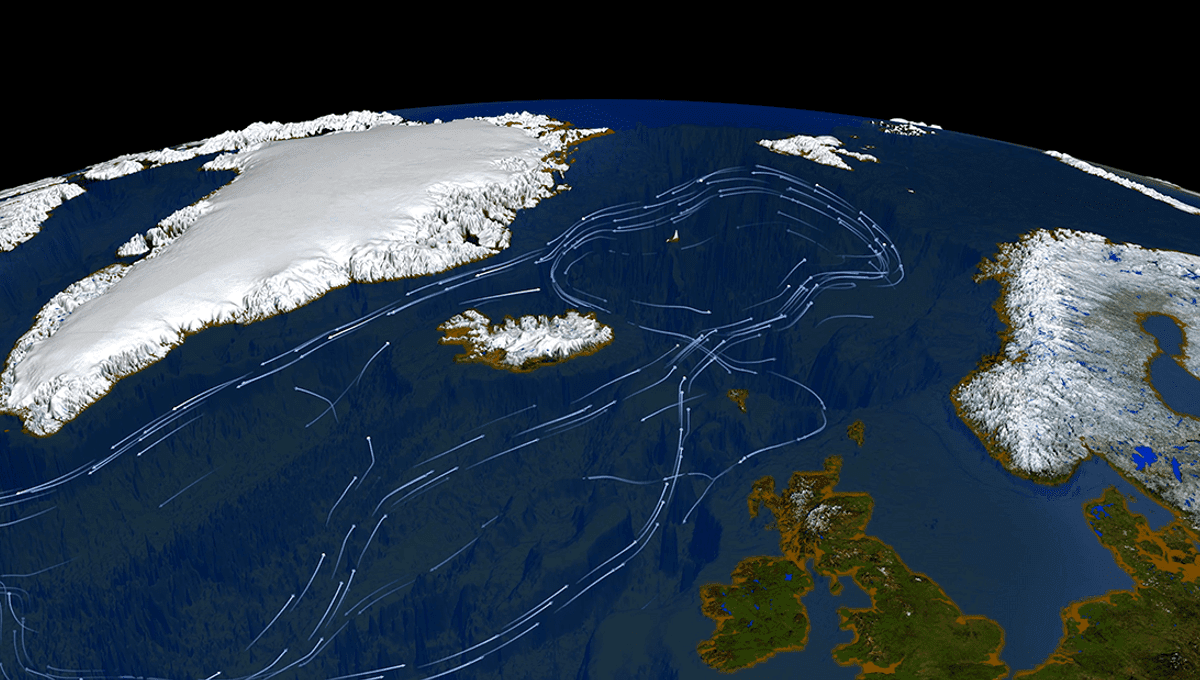
The Gulf Stream, part of the Atlantic Meridional Overturning Circulation (AMOC) and often described as one of the planet’s major climate tipping points, has been slowing down for some time now.
One paper attempted to discern the flow of the Atlantic Meridional Overturning Circulation (AMOC) over the centuries by looking at sediment, temperature data, and coral population records. According to the study, published in Nature Geoscience, proxy indicators showed that the AMOC went into an “unprecedented” decline in the 20th century, which accelerated in the 1960s. After a brief recovery in the 1990s, it declined again from the mid-2000s.
“There is evidence that the AMOC is slowing down in response to anthropogenic global warming – as predicted by climate models – and that the AMOC is presently in its weakest state for more than 1,000 years,” the team wrote in their paper. So what happens if it stopped?
The AMOC brings warm water to North West Europe. Without it, Europe gets a lot colder. One paper, which looked at how food production could adapt after this “climate tipping point”, modeled a collapse of the AMOC from 2030-2050. Under this scenario, temperatures across the UK would drop by an average of 3.4° C (38° F), with Scotland cooling the most.
Though the Gulf Stream tipping point is one watched by climate scientists, with predicted consequences of the shutdown of the AMOC including rapid sea-level rise on the east coast of North America, the Amazon Rainforest receiving less water, and an impact on Asian monsoons.
However, a recent study has found that the AMOC may not be as sensitive to warming temperatures in the Arctic as previously thought. As the AMOC takes warmer water north in the upper layers of the ocean, it also returns colder water south in the deeper layers. The theory went that, as the ice sheets melt, the influx of freshwater would disrupt the turnover of the water as it did so. But the study modeled the climate over the last 10,000 years, and found it was better to do away with this assumption.
“Without the freshwater coming in making the AMOC slow down in the model, we get a simulation with much better, lasting agreement with the temperature data from the climate record,” Feng He, an associate scientist at UW–Madison’s Center for Climatic Research, told Forbes in 2022. “The important result is that the AMOC appears to be less sensitive to freshwater forcing than has long been thought, according to both the data and model.”
In this model, the AMOC reduces in strength but does not stop.
“We suggest until this challenge is solved, any simulated AMOC changes from freshwater forcing should be viewed with caution,” He added to Forbes. “We can’t be certain why the AMOC shut down in the past. but we are certain it did change. And it can change again.”
Source Link: The Gulf Stream Is Slowing Down. What Would Happen If It Stopped?